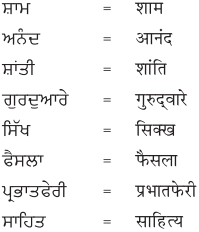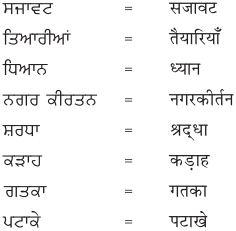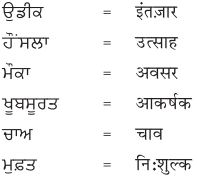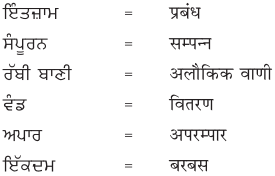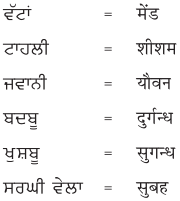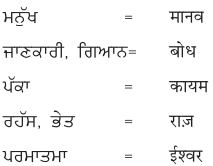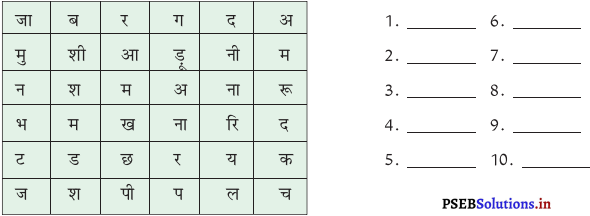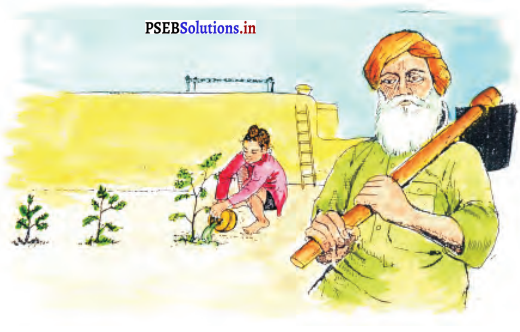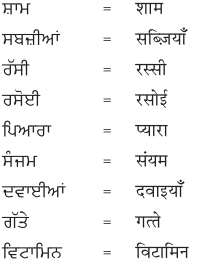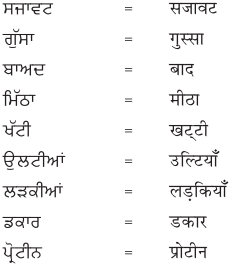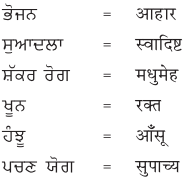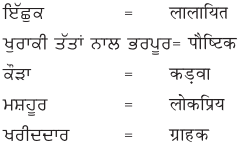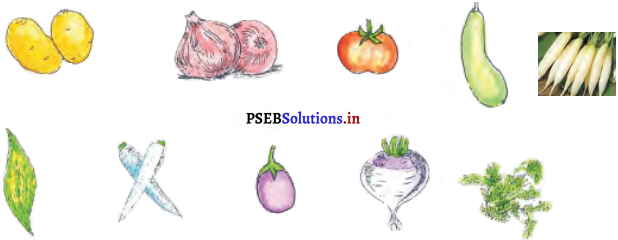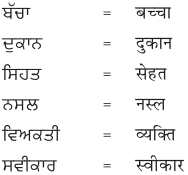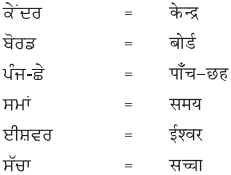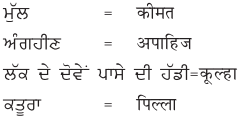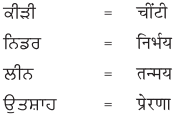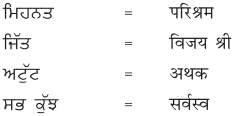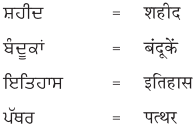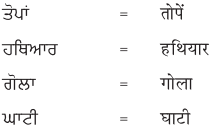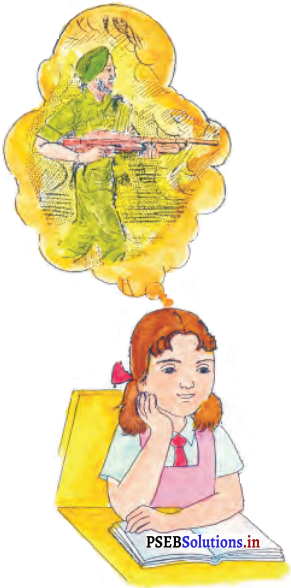Punjab State Board PSEB 6th Class Hindi Book Solutions Hindi Rachana Nibandh Lekhan निबंध लेखन Questions and Answers.
PSEB 6th Class Hindi Rachana निबंध लेखन(2nd Language)
श्री गुरु नानक देव जी
श्री गुरु नानक देव जी सिक्खों के पहले गुरु थे। इनका जन्म सन् 1469 ई० में तलवण्डी नामक गाँव में हआ। इसके पिता जी का नाम मेहता काल राय और माता का नाम तप्ता देवी था।
वह बचपन से ही प्रभु भक्ति में लीन रहते थे। इसलिए उनका मन पढ़ने में नहीं लगता था। एक बार पिता जी ने इनको कुछ रुपए दिए और सौदा ले आने को कहा। मार्ग में इन्होंने भूखे साधुओं को भोजन करा दिया और खाली हाथ लौट आए। फिर इनके पिता जी ने इनको सुलतानपुर में बहिन नानकी के पास भेज दिया, जहाँ इन्होंने मोदीखाने में नौकरी की। यहाँ भी वह अपना वेतन ग़रीबों और साधु-सन्तों में बाँट देते थे।
गुरु नानक देव जी का विवाह बटाला निवासी मूलचन्द की सुपुत्री सुलक्खणी जी के साथ हुआ। इनके दो पुत्र हुए-श्रीचन्द और लखमी दास। इन्होंने अनेक स्थानों की यात्राएँ की। इनकी यात्राओं को ‘उदासियों’ का नाम दिया गया। इन्होंने स्थान-स्थान पर लोगों को उपदेश दिया और अपना सारा जीवन लोगों की भलाई में लगा दिया। वह मक्का-मदीना भी गए। इन्होंने ईश्वर को निराकार बताया और कहा कि ईश्वर एक है। हम सब भाई-भाई हैं। सदा सच बोलना चाहिए। इनकी वाणी गुरु ग्रन्थ साहिब में शामिल है। अन्त में वह करतारपुर में आ गए और वहीं ईश्वर का भजन करते हुए ज्योति जोत समा गए।

श्री गुरु तेग बहादुर जी
सिखों के नवम् गुरु श्री गुरु तेग़ बहादुर जी का आत्म-बलिदान इतिहास की एक अद्भुत घटना है। गुरु जी का जन्म 1 अप्रैल, सन् 1621 ई० में हुआ। आपके सुपुत्र श्री गुरु गोबिन्द सिंह जी थे। आप शुरू से ही प्रभु के भक्त थे। आप में भलाई की भावना कूट कूट कर भरी हुई थी।
एक बार कश्मीर का शासक ब्राह्मणों पर घोर अत्याचार कर रहा था। वह ब्राह्मणों को जबरदस्ती मुसलमान बनाना चाहता था। तब दुःखी ब्राह्मण गुरु जी के पास आए और उन्हें अपने दुःख का कारण बताया। गुरु तेग बहादुर जी चिन्ता में डूब गए। तभी पुत्र गोबिन्द राय ने चिन्ता का कारण पूछा। तब गुरु तेग बहादुर जी ने कहा कि किसी बड़े महान् बलिदान की आवश्यकता है। तब गोबिन्द राय ने कहा कि आप से बढ़कर कौन महान् है। अपने पुत्र के इस कथन से गुरु जी बहुत प्रसन्न हुए।
गुरु जी दिल्ली में औरंगजेब के दरबार में पहुँचे। उन्होंने औरंगजेब को काफ़ी समझाया। लेकिन इनके महान् उपदेश का उस पर कोई प्रभाव न पड़ा। उसने गुरु जी को शहीद करने का हुक्म दे दिया। जैसे ही जल्लाद ने तलवार से गुरु जी पर प्रहार किया, आँधी चलने लगी। जीवन सिंह गुरु जी का शीश उठाकर ले गया। दो बनजारों ने गुरु जी का शव उठाकर घर को आग लगाकर उनका अन्तिम संस्कार कर दिया।
इस प्रकार गुरु जी ने अपने बलिदान से लोगों को यह प्रेरणा दी कि मौत से नहीं डरना चाहिए। सत्य की रक्षा के लिए उन्होंने अपनी जान की बाज़ी लगा दी। इनका . बलिदान अमर रहेगा।
श्री गुरु गोबिन्द सिंह जी श
गुरु गोबिन्द सिंह जी सिक्खों के दसवें गुरु थे। आपका जन्म सन् 1666 ई० में पटना में हुआ था। आपके पिता का नाम श्री गुरु तेग़ बहादुर और माता का नाम गुजरी जी था। आपको बचपन से ही तीर चलाने और घुड़सवारी का शौक था। आपने फ़ारसी और संस्कृत की शिक्षा प्राप्त की। आप बहुत निडर और शक्तिशाली योद्धा थे।
केवल 9 वर्ष की आयु में पिता की शहीदी के बाद आप गुरुगद्दी पर बैठे। समाज में. फैले अत्याचारों को दूर करने के लिए आपने सन् 1699 ई० में खालसा पंथ की स्थापना की तथा पाँच प्यारों को अमृत छकाया। धर्म की रक्षा के लिए आपके चारों पुत्रों ने अपने प्राण तक न्योछावर कर दिए। आप सारे सिक्खों को अपने पुत्रों के समान समझते थे तथा उनसे प्रेम का व्यवहार करते थे।
अपने अन्तिम समय में आप दक्षिण चले गए। वहाँ से बन्दा बैरागी नामक आदमी को अपना उत्तराधिकारी बनाकर भेजा। सन् 1708 ई० में एक पठान ने आपके पेट में छुरा घोंप दिया जिसके कुछ दिन पश्चात् आप ज्योति-जोत समा गये। आप ने देश और धर्म के लिए अपना सब कुछ न्योछावर कर दिया। इतिहास में आपका नाम हमेशा अमर रहेगा।

महाराजा रणजीत सिंह
महाराजा रणजीत सिंह पंजाब के एक महान् एवं वीर सपूत थे। इतिहास में उनका नाम ‘शेरे-पंजाब’ के नाम से प्रसिद्ध है। महाराजा रणजीत सिंह का जन्म 2 नवम्बर, सन् 1780 को गुजरांवाला में हुआ। आपके पिता सरदार महासिंह सुकरचकिया मिसल के मुखिया थे। आपकी माता राजकौर जींद की फुलकिया मिसल के सरदार की बेटी थी। आपका बचपन का नाम बुध सिंह था। सरदार महासिंह ने जम्मू को जीतने की खुशी में बुध सिंह की जगह अपने बेटे का नाम रणजीत सिंह रख दिया।
महाराजा रणजीत सिंह को वीरता विरासत में मिली थी। उन्होंने दस साल की उम्र में गुजरात के भंगी मिसल के सरदार साहिब को लड़ाई में कड़ी हार दी थी। उस समय रणजीत सिंह के पिता महासिंह अचानक बीमार हो गए थे। इस कारण सेना की बागडोर रणजीत सिंह ने सम्भाली थी।
महाराजा रणजीत सिंह की छोटी उम्र में ही इनके पिता की मृत्यु हो गई थी। इस कारण ग्यारह साल की उम्र में उन्हें राजगद्दी सम्भालनी पड़ी। पन्द्रह साल की उम्र में महाराजा रणजीत सिंह का विवाह कन्हैया मिसल के सरदार गुरबख्श सिंह की बेटी महताब कौर से हुआ। इन्होंने दूसरा विवाह नकई मिसल के सरदार की बहन से किया।
महाराजा रणजीत सिंह ने बड़ी चतुराई से सभी मिसलों को इकट्ठा किया और हकमत अपने हाथ में ले ली। 19 साल की उम्र में आपने लाहौर पर अधिकार कर लिया और उसे अपनी राजधानी बनाया। धीरे-धीरे जम्मू-कश्मीर, अमृतसर, मुलतान, पेशावर आदि सब इलाके अपने अधीन करके एक विशाल पंजाब राज्य की स्थापना की। आपने सतलुज की सीमा तक सिक्ख राज्य की जड़ें पक्की कर दी।
महाराजा रणजीत सिंह एक कुशल प्रशासक तथा न्यायप्रिय राजा थे। आप अपनी प्रजा से बहुत प्यार करते थे। सभी जातियों के लोग आपकी सेना में अफसर थे। प्रशासन चलाने में आपका मुकाबला कोई नहीं कर सकता था। आप सभी धर्मों को आदर की दृष्टि से देखते थे। यही कारण है कि सन् 1839 में आपकी मृत्यु पर सभी धर्मों के लोगों ने आपकी आत्मा की शान्ति के लिए प्रार्थना की।
लाला लाजपत राय
पंजाब केसरी लाला लाजपत राय भारत के वीर शहीदों में सबसे आगे हैं। लाला जी का के दुढिके ग्राम में सन् 1865 ई० में हुआ। इनके पिता लाला राधाकृष्ण एक अध्यापक थे। मैट्रिक परीक्षा में वज़ीफा प्राप्त कर वे गवर्नमेंट कॉलेज में प्रविष्ट हुए। एम० ए० पास करके फिर इन्होंने वकालत पास की। फिर हिसार में वकालत शुरू की।
इनमें देशभक्ति की भावना कूट-कूट कर भरी हुई थी। देश की स्वतन्त्रता के लिए इन्होंने आन्दोलनों में बढ़-चढ़ कर भाग लिया। वे इंग्लैण्ड भी गए। वहाँ से वापस आकर इन्होंने बंग-भंग आन्दोलन में भाग लिया जिस कारण इनको जेल यात्रा करनी पड़ी। फिर यूरोप और अमेरिका की यात्रा की।
सन् 1928 ई० में साइमन कमीशन भारत आया। तब इन्होंने उसका काली झण्डियों से स्वागत किया। पुलिस ने इन पर लाठियाँ बरसाईं। लाला जी की छाती पर कई चोटें आईं। इन घावों के कारण वे 17 नवम्बर, सन् 1928 को संसार से सदा के लिए विदा हो गए। इन्होंने देश की आजादी के लिए अपने जीवन का बलिदान कर दिया। भारत इनके महान् बलिदान को हमेशा याद रखेगा।

महात्मा गाँधी
महात्मा गाँधी भारत के महान नेताओं में से एक थे। इनका जन्म 2 अक्तूबर, सन् 1869 को पोरबन्दर (गुजरात) में हुआ। इनके पिता का नाम कर्मचन्द गांधी और माता का नाम पुतली बाई था जो एक धार्मिक स्वभाव की स्त्री थी। इन्होंने मैट्रिक परीक्षा पोरबन्दर में ही पास की। फिर आप बैरिस्ट्री (वकालत) की शिक्षा प्राप्त करने के लिए इंग्लैण्ड चले गए। वहाँ से बैरिस्टर बनकर भारत लौटे तथा मुम्बई (बम्बई) में वकालत शुरू की। किसी मुकद्दमे के सिलसिले में ये दक्षिणी अफ्रीका गए। वहाँ भारतीयों के साथ अंग्रेज़ों का दुर्व्यवहार देखकर वे बहुत दु:खी हुए।
सन् 1915 में भारत वापस आकर सत्याग्रह आन्दोलन चलाया। सन् 1920 में असहयोग आन्दोलन चलाया। सन् 1928 में साइमन कमीशन का बायकॉट किया। देश के आन्दोलनों में बढ़-चढ़ कर भाग लेने के कारण कई बार जेल गए सन् 1947 में अपने अहिंसा के शस्त्र से इन्होंने देश को आजाद करवाया। सारा देश इन्हें बापू गांधी कहता है। वे सारे राष्ट्र के पिता थे। 30 जनवरी, सन् 1948 को वे नाथू राम गोडसे की गोली का शिकार हो गए जिससे इनकी मृत्यु हो गई। गांधी जी मर कर भी अमर हैं। हमें गांधी जी के जीवन से शिक्षा लेनी चाहिए।
पंडित जवाहर लाल नेहरू
पंडित जवाहर लाल नेहरू भारत के पहले प्रधानमन्त्री थे। इनका जन्म 14 नवम्बर, सन् 1889 को इलाहाबाद में हुआ था। इनके पिता का नाम मोती लाल नेहरू तथा माता का नाम स्वरूप रानी था। इनका बचपन बड़े लाड़-प्यार से बीता। 15 वर्ष की आयु में ये इंग्लैण्ड गए। पहले ये हैरो स्कूल में पढ़े फिर कैम्ब्रिज में। वहाँ से बैरिस्टरी पास करके ये भारत लौटे।
वापस आने पर इनका विवाह कमला नेहरू से हुआ। पति-पत्नी दोनों ने बढ़-चढ़ देश के कार्यों में भाग लेना शुरू कर दिया। इनमें शुरू से ही देश प्यार कूट-कूट कर भरा हुआ था। देश को स्वतन्त्र कराने के लिए इन्हें कई बार कारावास का दण्ड मिला। सन् 1942 में कांग्रेस ने ‘भारत छोड़ो’ का नारा लगाया। अन्य नेताओं के साथ-साथ नेहरू जी भी कारावास में बन्द कर दिये गए। सन् 1947 में जब भारत आजाद हुआ तो ये प्रधानमन्त्री बने। ये सादगी को पसन्द करते थे। ये शान्ति के अवतार और प्रसिद्ध राजनीतिज्ञ थे। बच्चे प्यार से इन्हें ‘चाचा नेहरू’ कहते थे। 27 मई, सन् 1964 को पं० जवाहर लाल नेहरू स्वर्ग सिधार गए। उन्होंने देश के लिए जितने कष्ट सहन किए, उनकी कोई तुलना नहीं हो सकती। वे भारत के सर्वाधिक लोकप्रिय नेता थे।
अमृतसर का हरिमन्दिर साहिब
सिक्खों के चौथे धर्म गुरु रामदास जी द्वारा अमृतसर की स्थापना हुई। अमृतसर का अर्थ है-अमृत+सर अर्थात् अमृत का तालाब। गुरु रामदास जी के बाद उनके सपुत्र अर्जन देव 157 जी ने इस मन्दिर का विकास किया। सिक्ख धर्म के पवित्र ग्रन्थ ‘गुरु ग्रन्थ साहिब’ को मन्दिर में प्रतिष्ठित करने का श्रेय भी गुरु अर्जन देव जी को ही है। सिक्खों ने जब राजनीतिक क्षेत्र में प्रगति की तो इस मन्दिर को भव्य रूप दिया जाने लगा। महाराजा रणजीत सिंह के राज्य में इस मन्दिर ने प्रगति की। इसे ‘दरबार साहिब’ तथा ‘हरिमन्दिर साहिब’ का नाम दिया गया है।
हरिमन्दिर साहिब की शोभा भी अद्वितीय है। मन्दिर के बाहर का दृश्य भी बड़ा सुन्दर है। यहां अनेक दुकानें हैं। मन्दिर के भीतर का दृश्य मुग्धकारी है। मन्दिर विशाल सरोवर से घिरा हुआ है। मन्दिर का सारा क्षेत्र संगमरमर के पत्थर से बना हुआ है। आंगन पार करने पर ऊंचा ध्वज स्तम्भ है जिस पर केसरिया ध्वज हवा में बातें करता है। एक बड़ा नगाड़ा भी है जिसके द्वारा सायंकाल तथा प्रात:काल की प्रार्थनाओं की घोषणा की जाती है।

दिनभर यहां भजन, कीर्तन की गूंज रहती है। मन्दिर की तीन मंजिलें हैं। नीचे की मंज़िल में एक स्वर्ण जड़ित सिंहासन पर ‘श्री गुरु ग्रन्थ साहिब जी’ सुशोभित होते हैं। मन्दिर का भीतरी भाग अत्यन्त सुन्दर है। यह सोने, चांदी और पच्चीकारी से मढ़ा हुआ है। मन्दिर के कुछ अपने नियम हैं जिनका श्रद्धालुओं को पालन करना पड़ता है। विशेष अवसरों पर मन्दिर को विशेष ढंग से सजाया जाता है। इसको फूलों की तोरण तथा बिजली की रोशनी से सजा कर अलौकिक रूप दिया जाता है।
अमृतसर का हरिमन्दिर साहिब भारतीय संस्कृति, कला तथा धर्म का प्रत्यक्ष रूप है। यह सिक्खों की धर्म के प्रति आस्था को प्रकट करता है। इसके साथ ही यह एक युग के इतिहास की याद भी दिलाता है। इसके माध्यम से ही सिक्ख गुरुओं तथा अनेक शिष्यों का योगदान प्रशंसनीय रहा है। ऐसे धार्मिक स्थान हमारे लिए प्रेरणा का स्रोत हैं। ये स्थान हमारे मन में आस्तिकता की भावना और अपनी संस्कृति की रक्षा के भाव जगाते हैं। ऐसे स्थानों का सम्मान और उनकी रक्षा करना प्रत्येक भारतवासी का परम कर्त्तव्य है।
अमृतसर का हरिमन्दिर साहिब एक पावन तीर्थ स्थल है। वहां जाकर हृदय को अपूर्व शान्ति मिलती है। श्रद्धालु वहां जाकर जो कुछ मांगते हैं, उनकी आशाएं पूर्ण होती हैं। भला भगवान् के दरबार से कोई खाली लौट सकता है? इस सरोवर का अमृत जल जो पीता है उसका मन स्वच्छता के निकट पहुंचने लगता है।
हमारा देश
हमारे देश का नाम भारत है। यह हमारी मातृभूमि है। दुष्यन्त और शकुन्तला के पुत्र भरत के नाम पर इसका भारत नाम पड़ा। यह एक विशाल देश है। जनसंख्या की दृष्टि से यह संसार में दूसरे स्थान पर है। इसकी जनसंख्या 125 करोड़ से ऊपर हो गई है। यहाँ पर अलग-अलग जातियों के लोग रहते हैं।
भारत के उत्तर में हिमालय है और शेष तीनों ओर समुद्र है। इस पर अनेक पर्वत, नदियाँ, मैदान और मरुस्थल हैं। स्थान-स्थान पर हरे-भरे वन इसकी शोभा हैं। यह एक खेती-प्रधान देश है। यहाँ की 70% जनता गाँवों में रहती है। यहाँ गेहूँ, मक्का, बाजरा, ज्वार, चना, गन्ना आदि फसलें होती हैं। यहाँ की धरती बहुत उपजाऊ है। गंगा, यमुना जैसी पवित्र नदियाँ बहती हैं। इसकी भूमि से लोहा, कोयला, सोना आदि कई प्रकार के खनिज पदार्थ निकलते हैं।
यहाँ पर कई धर्मों के लोग निवास करते हैं। सभी प्रेम से रहते हैं। यहाँ पर अनेक तीर्थ हैं। ताजमहल, लाल किला, सारनाथ, शिमला, मसूरी, श्रीनगर आदि प्रसिद्ध स्थान हैं जो देखने योग्य हैं। यहाँ पर कई महापुरुषों ने जन्म लिया। श्रीराम, श्रीकृष्ण, गुरु नानक देव जी, दयानन्द, रामतीर्थ, तिलक, गांधी आदि इस देश की शोभा थे। यह देश दिन दुगुनी रात चौगुनी उन्नति कर रहा है। यहाँ के कारखानों में अब लगभग हर वस्तु तैयार होती है। इसके वैज्ञानिकों ने मंगल ग्रह पर अपना यान पहुँचा दिया है।

हमारा पंजाब
पंजाब एक अनोखा प्रदेश है। इसे पाँच नदियाँ सींचती हैं। इस कारण इसे पंजाब (पंज + आब) कहा जाता है। इसकी राजधानी चण्डीगढ़ है। यहाँ के लोगों का मुख्य व्यवसाय कृषि है। पंजाब की भूमि बहुत उपजाऊ है। भारत की सबसे अधिक फसलें यहीं पर पैदा होती हैं। यहाँ पर सतलुज, ब्यास, रावी, चिनाब, जेहलम नदियाँ बहती हैं।
पंजाब के जवान स्वस्थ शरीर वाले, सुन्दर और उदार स्वभाव के हैं। उनमें स्वाभिमान कट-कट कर भरा हआ है। आजादी की लडाई में इन्होंने बढ़-चढ़ कर भाग लिया। देश के प्रसिद्ध नेता लाला लाजपत राय, भगत सिंह इसी प्रान्त से सम्बन्ध रखते हैं। पंजाबी जवान देश की रक्षा के लिए अपनी जान तक की बाजी लगा देते हैं।
पंजाब के लोग बहुत परिश्रमी और साहसी हैं। इसी कारण यह बड़ी उन्नति कर रहा है। यह उद्योगों में भी उन्नति कर रहा है। रेशमी कपड़े, हौज़री, खेलों के सामान और लोहे के सामान के लिए यह प्रसिद्ध है। खेलों में भी इस प्रान्त के लोग बहुत आगे हैं। जालन्धर में बना हुआ खेलों का सामान दुनिया भर के बाजारों में बिकता है। पंजाब का लकड़ी और धातु उद्योग भी बहुत प्रसिद्ध है। यही कारण है कि यह खुशहाली के रास्ते पर बढ़ रहा है। गुरुओं की धरती इस पंजाब पर मुझे गर्व है। इसके प्रति हमारे दिल में असीम प्यार है।
मेरा गाँव
मेरे गाँव का नाम ………….. है। यह होशियारपुर का सबसे बड़ा गाँव है। यहाँ की जनसंख्या पन्द्रह हज़ार है। यह होशियारपुर से छ: मील की दूरी पर स्थित है। यह पक्की सड़कों द्वारा शहर के साथ जुड़ा हुआ है। यहाँ पर रेल लाइन भी बिछी है जिस कारण यहाँ। के रहने वालों को आने-जाने में कोई मुश्किल नहीं होती।
इस गाँव में एक हाई स्कूल तथा एक प्राइमरी स्कूल भी है। यहाँ लड़के और लड़कियाँ शिक्षा प्राप्त करते हैं। यहाँ पर अधिकतर लोग खेती-बाड़ी करते हैं। वे नए ढंगों से खेती करते हैं। यहाँ सब लोग मिल-जुल कर रहते हैं।
मेरे गाँव में एक सरकारी अस्पताल भी है जहाँ पर रोगियों की देखभाल की जाती है। एक पंचायत घर भी है जहाँ लोगों को सच्चा न्याय मिलता है। यहाँ पर ट्यूबवैल और कुओं
आदि से खेती की जाती है। पानी का विशेष प्रबन्ध है।

अधिकतर मकान कच्चे हैं। कुछ पक्के भी हैं। गाँव की गलियाँ पक्की बनी हुई हैं। लोग आपस में मिल-जुल कर रहते हैं। वे गाँव की सफ़ाई का पूर्ण ध्यान रखते हैं। मुझे अपने गाँव की मिट्टी के कण-कण से प्यार है तथा मैं इस पर गर्व करता हूँ।
मेरी पाठशाला (स्कूल)
मेरी पाठशाला का नाम …………………. है। यह एक बहुत बड़ी इमारत है। यह जी० टी० रोड पर स्थित है। इसमें 20 कमरें हैं। सभी कमरे खुले और हवादार हैं। प्रत्येक कमरे में दो खिड़कियाँ और दो-दो दरवाजे हैं। ये बहुत साफ़-सुथरे हैं।
पानी पीने के लिए यहाँ पर कई नलके लगे हुए हैं। पुस्तकें पढ़ने के लिए एक पुस्तकालय है। पाठशाला के सामने ही एक बागीचा है। यहाँ पर कई प्रकार के फूल लगे हैं जो पाठशाला की शोभा को चार चाँद लगा देते हैं। पाठशाला में अन्दर आते ही मुख्याध्यापक का दफ्तर है और दूसरी तरफ अध्यापकों का कमरा है। इनके साथ ही एक . साईंस रूम है। यहाँ बच्चों को क्रियात्मक कार्य करवाया जाता है।
मेरी पाठशाला में पच्चीस अध्यापक हैं जो बहुत योग्य हैं और परिश्रम से बच्चों को पढ़ाते हैं। वे मुख्याध्यापक का सम्मान करते हैं और बच्चों के साथ भी प्रेम का व्यवहार करते हैं। पाठशाला के पीछे एक खेल का मैदान है जहाँ पर बच्चे शाम को खेलते हैं। मेरी पाठशाला का परिणाम हर साल बहुत अच्छा निकलता है। अनुशासन और प्रेम का व्यवहार यहाँ पर सिखाया जाता है। मुझे अपनी पाठशाला पर गर्व है।
मेरा प्रिय अध्यापक
मेरे स्कूल में बहुत-से अध्यापक हैं लेकिन उन सब में से मुझे श्री वेद प्रकाश जी बहुत अच्छे लगते हैं। वह हमें हिन्दी पढ़ाते हैं। उनके पढ़ाने का ढंग बहुत अच्छा है। वह एम० ए०, बी० एड० हैं। वह सभी विद्यार्थियों से स्नेह का व्यवहार करते हैं और पाठ को अच्छी तरह से समझाते हैं।
वह एक उच्च विचारों वाले और नम्र स्वभाव के व्यक्ति हैं। वह सादगी को बहुत पसन्द करते हैं और बच्चों को भी सादा रहने का उपदेश देते हैं। वह सदा सच बोलते हैं। वह हमेशा समय पर स्कूल आते हैं। वह अन्य सभी अध्यापकों का तथा मुख्याध्यापक का बहुत सम्मान करते हैं। उनकी वाणी में मिठास है। वह किसी बच्चे को पीटते नहीं हैं बल्कि उन्हें प्यार से समझाते हैं। वह सिगरेट आदि का सेवन नहीं करते हैं।
वह बहुत रहम दिल हैं और वह कमजोर और ग़रीब बच्चों की सहायता करते हैं। वह बच्चों के सच्चे हित को चाहने वाले हैं। वह एक खिलाड़ी हैं और बच्चों को भी खेलने की प्रेरणा देते हैं। बच्चे उनकी शिक्षाओं से अच्छे बन सकते हैं। सभी विद्यार्थी उनका बहुत सम्मान करते हैं। मुझे उन पर गर्व है।

मेरा मित्र
रमेश मेरा बहुत अच्छा मित्र है। वह मेरे साथ ही छठी कक्षा में पढ़ता है। उसकी आयु बारह साल के लगभग है। उसके पिता जी एक डॉक्टर हैं। उसकी माता जी एक धार्मिक स्वभाव की स्त्री हैं। वह उसे सदाचार की शिक्षा देती हैं।
रमेश पढ़ने में बहुत होशियार है। परीक्षा में वह सदा प्रथम रहता है। वह हमारे घर के पास ही रहता है। उसके पिता जी उसे और मुझे सुबह सैर करने ले जाते हैं। वह सुबह जल्दी ही उठ जाता है। वह प्रतिदिन स्नान करता है और समय पर स्कूल जाता है। वह सभी के साथ बड़ा नम्र व्यवहार करता है। वह हमेशा सादे कपड़े पहनता है और सदा सत्य बोलता है। उसका चेहरा हँसमुख और स्वभाव सरल है। वह किसी बुरे और शरारती लड़के की संगति नहीं करता है और मुझे भी बुरी संगति करने से रोकता है। वह कमजोर विद्यार्थियों की सहायता करता है।
रमेश खेलों में भी बहुत रुचि लेता है। वह स्कूल की हॉकी टीम में खेलता है। वह शाम को खेलने जाता है। वह बड़ा स्वस्थ दिखाई देता है। रात को वह पढ़ता है। वह बड़ा मन लगाकर पढ़ाई करता है। इसी कारण वह हमेशा प्रथम रहता है। उसे कई इनाम भी मिल
चुके हैं। सभी अध्यापक उसे बहुत प्यार करते हैं। मुझे अपने इस मित्र पर गर्व है।
दशहरा
दशहरा प्रधान त्योहारों में से एक है। यह आश्विन मास की शुक्ल पक्ष दशमी तिथि को मनाया जाता है। इस दिन श्री राम ने रावण पर विजय पाई थी। भगवान् राम के वनवास के दिनों में रावण छल से सीता को हर कर ले गया था। राम ने हनुमान और सुग्रीव आदि मित्रों की सहायता से लंका पर हमला किया तथा रावण को मार कर लंका पर विजय पाई। तभी से यह त्योहार मनाया जाता है।
दशहरा रामलीला का आखिरी दिन होता है। भिन्न-भिन्न स्थानों में अलग-अलग प्रकार से यह दिन मनाया जाता है। बड़े-बड़े नगरों में रामायण के पात्रों की झांकियाँ निकाली जाती हैं। दशहरे के दिन रावण, कुम्भकर्ण तथा मेघनाद के कागज़ के पुतले बनाए जाते हैं। सायंकाल के समय राम और रावण के दलों में बनावटी लड़ाई होती है। राम रावण को मार देते हैं। रावण आदि के पुतले जलाए जाते हैं। पटाखे आदि छोड़े जाते हैं। लोग मिठाइयाँ तथा खिलौने लेकर घरों को लौटते हैं।
इस दिन कुछ असभ्य लोग शराब पीते हैं और लड़ते हैं। यह ठीक नहीं। यदि ठीक ढंग से इस त्योहार को मनाया जाए तो बहुत लाभ हो सकता है। स्थान-स्थान पर भाषणों का प्रबन्ध होना चाहिए।

दीवाली
दीवाली हमारे देश का एक पवित्र और प्रसिद्ध त्योहार है। यह त्योहार कार्तिक मास की अमावस्या को मनाया जाता है। यह दशहरे के बीस दिन बाद आता है। इस दिन भगवान् श्री राम लंका के राजा रावण को मार कर तथा वनवास के चौदह वर्ष पूरे कर अयोध्या लौटे थे। तब लोगों ने उनके स्वागत में रात को दीये जलाए थे। उनकी पवित्र याद में यह दिन बड़े सम्मान से मनाया जाता है। सिक्खों के छठे गुरु श्री गुरु हरगोबिन्द जी भी इसी दिन ग्वालियर के किले से मुक्त होकर लौटे थे इसलिए सिक्ख भी इस त्योहार को विशेष उत्साह के साथ मनाते हैं।
दीवाली से कई दिन पूर्व तैयारी आरम्भ हो जाती है। लोग घरों की लिपाई-पुताई करते हैं। कमरों को सजाते हैं। घरों का कूड़ा-कर्कट बाहर निकालते हैं। दीवाली के दिन सारा घर दीपकों की रोशनी से जगमगा उठता है। बच्चे, बूढ़े, युवा सभी नए-नए कपड़े पहनते हैं। लोग बाजारों से मिठाइयाँ, खिलौने व आतिशबाजियाँ आदि खरीदते हैं। बच्चे विशेषकर बहुत खुश नज़र आते हैं।
इस दिन लोग मित्रों को बधाई देते हैं और मिठाइयाँ बाँटते हैं। रात को आतिशबाज़ी चलाते हैं। लोग रात को लक्ष्मी की पूजा करते हैं। दुर्गा सप्तशति का पाठ करते हैं। दीवाली हमारा धार्मिक त्योहार है। इसे उचित रीति से मनाना चाहिए। विद्वान् लोगों को जनसाधारण को उपदेश देकर अच्छे रास्ते पर चलाना चाहिए। जुआ और शराब का इस्तेमाल बहुत बुरा है, इससे बचना चाहिए। आतिशबाजी पर अधिक खर्च नहीं करना चाहिए।
वैशाखी
वैशाखी का त्योहार हर साल एक नवीन उत्साह और उमंग लेकर आता है। यह सारे भारत में मनाया जाता है। इस दिन लोगों में नई चेतना, एक नई स्फूर्ति और खुशी दिखाई देती है। इसे सभी धर्मों के लोग खुशी से मनाते हैं।
वैशाखी वैशाख मास की संक्रान्ति को होती है। 13 अप्रैल को यह त्योहार मनाया जाता है। सूर्य के गिर्द वर्ष भर का चक्कर काट कर पृथ्वी जब दूसरा चक्कर आरम्भ करती है तो उस दिन वैशाखी होती है। वैशाख महीने से नया साल शुरू होता है। इसी दिन वर्ष भर के कामों का लेखा-जोखा किया जाता है। स्कूलों का सत्र भी वैशाखी अर्थात् अप्रैल से ही शुरू होता है। इस समय नई फसल पक कर तैयार हो जाती है। किसान अपनी फसल को पाकर झूम उठते हैं। वे कहते हैं –
फसलां दी मुक गई राखी
ओ जट्टा आई वैशाखी।

वैशाखी के दिन पंजाब के कई स्थानों पर मेले लगते हैं। लोग नए-नए रंग-बिरंगे कपडे पहन कर मेला देखने जाते हैं। वहाँ कई प्रकार की दकानें सजी होती हैं जहाँ से लोग अपनी ज़रूरत की चीजें खरीदते हैं। लोगों की बहुत भीड़ होती है। पशुओं की मंडियाँ लगती हैं। जगह-जगह पर कुश्तियाँ होती हैं। मदारी अपने करतब दिखाते हैं। बच्चे तो बड़े खुश दिखाई देते हैं, गीत गाते हैं और झूम-झूम कर अपनी मस्ती और खुशी प्रकट करते हैं।
किसानों के दल खुशी से अपने लहलहाते खेतों को देखकर भांगड़ा डालते हैं। ढोल की आवाज़ सबको अपनी ओर खींच रही होती है।
गुरुद्वारों में गुरबाणी का पाठ होता है। इसी दिन दशम गुरु गोबिन्द सिंह जी ने खालसा पंथ की स्थापना की थी। पवित्र नदियों और सरोवरों में लाखों लोग स्नान करते हैं। इसके बाद वे श्रद्धा अनुसार दान पुण्य करते हैं और मित्रों में मिठाई बाँटते हैं। अमृतसर में वैशाखी का मेला देखने योग्य होता है।
प्रातःकाल की सैर
प्रात:काल की सैर मनुष्य के स्वास्थ्य लिए बहुत आवश्यक है। यह शरीर के लिए बड़ी लाभदायक होती है। सुबह के समय सैर करना वैसे भी मनोरंजन करने के समान है। सुबह के समय प्राकृतिक छटा निराली होती है। सुबह की लाली चारों ओर फैली होती है। पक्षियों के कलरव हो रहे होते हैं जो बहुत अच्छे लगते हैं। शीतल हवा चल रही होती है। खिले हुए फूल बड़े सुन्दर लगते हैं। पेड़-पौधों का दृश् बड़ा लुभावना होता है।
मैं अपने मित्र मोहन के साथ रोज़ाना प्रात:काल को सैर के लिए जाता हूँ। हम सुबह सूरज के उदय होने से पहले ही उठ जाते हैं और पास के बाग़ में सैर के लिए जाते हैं। हम वहाँ पहुँच कर सैर करते हैं और फिर कुछ कसरत भी करते हैं। कसरत करने से शरीर में स्फूर्ति आ जाती है और शरीर हल्का-फुल्का हो जाता है। सुबह की सैर के लाभ भी बहुत होते हैं। शरीर में फुर्ती आती है। स्वच्छ वायु के सेवन से खून साफ़ होता है। शरीर की कसरत होती है। शारीरिक रोगों से बचाव होता है। दिमाग की ताकत बढ़ती है। आलस्य दूर भागता है। सदाचार की वृद्धि होती है। काम करने को मन लगता है।
अतः हमें नियमित रूप से प्रातः भ्रमण करना चाहिए।

बसन्त
भारत में क्रमश: छः ऋतुएँ आती हैं। प्रत्येक ऋतु का अपना महत्त्व है। बसन्त को तो ऋतुराज कहते हैं। इस ऋतु के आगमन से प्रकृति में सौन्दर्यता छा जाती है। प्रकृति का नया रूप आँखों को बड़ा मोहक लगता है। पेड़-पौधे हरे-भरे हो जाते हैं। प्राणी मात्र में नया उल्लास छा जाता है। उपवनों में रंग-बिरंगे फूल हँसने लगते हैं। आम के वृक्ष बौर से लद जाते हैं। कोयल की मधुर आवाज़ कानों में रस घोलने लगती है।
नदी-नालों का जल स्वच्छ हो जाता है। लहलहाते खेतों तथा पीली सरसों का दृश्य मनमोहक होता है। गाँवों की शोभा तो विशेष दर्शनीय होती है। इस ऋतु में अनेक कार्यक्रमों की योजना की जाती है। इस ऋतु का प्रत्येक दिन ही उत्सव का दिन होता है। बसन्त का उत्सव बड़े चाव से मनाया जाता है। पीली वस्तुओं के प्रति लोगों का आकर्षण बढ़ जाता है। बसन्त पंचमी के दिन पतंग उड़ाए जाते हैं। खुले स्थानों पर मेले का दृश्य देखते ही बनता है। बसन्त पंचमी के दिन विद्या की देवी ‘सरस्वती’ का पूजन होता है।
धर्मवीर हकीकत राय ने बसन्त के दिन अपने जीवन का बलिदान दिया था। इसलिए उस धर्मवीर की स्मृति में भी अनेक स्थानों पर मेले लगते हैं। यह दिन हमें धर्म की रक्षा के लिए अपना सब कुछ अर्पित करने की प्रेरणा देता है।
स्वतन्त्रता दिवस (15 अगस्त)
आ प्यारे स्वतन्त्र देश आ, स्वागत करता हूँ तेरा।
तुझे देखकर आज हो रहा, प्रमुदित दूना मन मेरा॥
पन्द्रह अगस्त, सन् 1947 का दिन भारत के इतिहास में स्वर्ण अक्षरों में लिखा जाने योग्य है। इस दिन भारत देश अंग्रेजी शासकों के अत्याचारों से मुक्त हुआ था। लेकिन हमें यह आजादी यूं ही नहीं प्राप्त हो गई बल्कि इस आज़ादी को प्राप्त करने के लिए अनेक देशभक्तों ने अपने प्राण न्योछावर कर दिए थे। पण्डित जवाहर लाल जी स्वतन्त्र भारत के पहले प्रधानमन्त्री बने। संसद् भवन पर तिरंगा झण्डा लहराया गया। उस दिन दिल्ली के लाल किले पर पं. जवाहर लाल नेहरू जी ने अपने हाथों से तिरंगा झण्डा लहराया। लाखों लोगों ने इसमें भाग लिया। तब से लेकर अब तक यह त्योहार हर वर्ष सारे भारतवर्ष में बड़ी धूम-धाम से मनाया जाता है।
भारत की राजधानी दिल्ली में आजादी का यह पर्व बड़े हर्षोल्लास के साथ मनाया जाता है। सारी दिल्ली दुल्हन की तरह सजाई जाती है। लाल किले की आभा तो देखते ही बनती है। यहीं से प्रधानमन्त्री भारतवासियों के नाम सन्देश देते हैं। इस सन्देश में भारत देश की प्रगति व विकास की गाथा का वर्णन होता है। इण्डिया गेट की शोभा भी निराली होती है। देश-विदेश से लोग इस समारोह में भाग लेने के लिए आते हैं। आकाश से वायुयानों द्वारा फूलों की वर्षा की जाती है। शाम को सारी दिल्ली रोशनी से जगमगा जाती है।।
आज हमें आजादी तो मिल गई है परन्तु हमें देश के प्रति कर्तव्यों को निभाना चाहिए। हमें उन शहीदों को याद रखना चाहिए जिन्होंने अपनी कुर्बानी देकर हमें आज़ादी दिलवाई।

गणतन्त्र दिवस (26 जनवरी)
26 जनवरी का दिन भारत के लिए विशेष महत्त्व का दिन है। यह एक राष्ट्रीय त्योहार है। भारत की सभी जातियाँ हिन्दू, मुस्लिम, सिक्ख, ईसाई, बौद्ध तथा जैनी बिना किसी भेद-भाव के इसे बड़े उत्साह से मनाते हैं।
26 जनवरी, सन् 1929 को लाहौर में रावी नदी के तट पर भारतीय कांग्रेस अधिवेशन में नेहरू जी ने यह प्रतिज्ञा की थी कि हम पूर्ण स्वराज्य लेकर ही छोड़ेंगे। उस समय अंग्रेज़ों का बोलबाला था। भारतीयों पर अत्याचार हो रहे थे। अंग्रेजी सरकार ने दमन नीति को अपनाया हुआ था। किन्तु हिन्दू, मुसलमान तथा सिक्ख सभी ने एक झण्डे के नीचे दासता की बेड़ियों को तोड़ने की प्रतिज्ञा की हुई थी। यह आजादी का युद्ध वर्षों तक लगातार चलता रहा। आखिरकार मज़बूर होकर अंग्रेजों को भारत छोड़ना पड़ा तथा 15 अगस्त, सन् 1947 को हमें स्वतन्त्रता प्राप्त हो गई।
किन्तु अंग्रेज़ जाते-जाते अपनी कूटनीति का खेल खेलते हुए भारत के दो टुकड़े कर गए और इस प्रकार भारत और पाकिस्तान दो देश बन गए।
अंग्रेजों का शासन खत्म हो गया परन्तु विधान अभी अंग्रेजों का ही लागू था। भारत का अपना संविधान बनना शुरू हुआ और अन्त में 26 जनवरी, सन् 1950 से लागू हुआ। संविधान के अनुसार भारत गणराज्य बन गया।
26 जनवरी का दिन प्रति वर्ष भारत के कोने-कोने में बड़े उत्साह से मनाया जाता है। नगर-नगर में सभाएँ तथा जुलूस निकलते हैं। राष्ट्रीय झण्डे लहराए जाते हैं। किन्तु दिल्ली में यह दिन धूमधाम से मनाया जाता है। यह समारोह भारत के राष्ट्रपति की सवारी से शुरू होता है। राष्ट्रपति की सवारी को सलामी देने के लिए स्थल सेना, जल सेना और वायु सेना तीनों की चुनी हुई टुकड़ियाँ सवारी के साथ-साथ चलती हैं। सवारी इण्डिया गेट से शुरू होती है और नई दिल्ली के खास-खास स्थानों से होती हुई आगे बढ़ती है। सवारी के पीछे-पीछे अलग-अलग प्रान्तों के लोग अपने कार्यक्रम की झांकियाँ दिखाते हैं। राष्ट्रपति
को 21 तोपों से सलामी दी जाती है।
26 जनवरी का दिन मनोरंजन का दिन ही नहीं मानना चाहिए बल्कि इस दिन हमें कुछ प्रतिज्ञा करनी चाहिए ताकि देश में बढ़ती हुई रिश्वतखोरी, लूटमार, पक्षपात आदि दूर किए जा सकें। हमें उन वीरों का कर्जा चुकाना होगा जिन्होंने अपनी कुर्बानियों द्वारा हमें आजादी से साँस लेने का अवसर दिया। तभी हमारी आज़ादी सफल तथा पूर्ण होगी।

समाचार-पत्र
मनुष्य एक जिज्ञासु प्राणी है। वह अपने आस-पास घटने वाली घटनाओं की जानकारी प्राप्त करना चाहता है। प्राचीन काल में उसकी यह जिज्ञासा पूरी न हो पाती थी। विज्ञान ने जहाँ हमें अन्य अनेक प्रकार की सुविधाएँ दी हैं, उनमें समाचार-पत्र के द्वारा हम घर बैठे ही देश-विदेश के समाचारों को जान लेते हैं। संसार के किसी भी कोने में घटने वाली घटना तार, टेलीफोन अथवा इंटरनेट के द्वारा समाचार-पत्रों के कार्यालयों में पहुँच जाती है।
समाचार-पत्रों से हमें अनेक लाभ हैं। नगर, प्रान्त, देश तथा विदेश आदि के समाचारों को हम समाचार-पत्र द्वारा घर बैठे जान लेते हैं। इससे हमारे ज्ञान में भी वृद्धि होती है। समय-समय पर इनमें अनेक प्रकार के चित्र भी छपते रहते हैं। इन चित्रों के द्वारा जहाँ हमारा मनोरंजन होता है, वहाँ इनसे अनेक प्रकार के ऐतिहासिक, धार्मिक तथा प्राकृतिक स्थानों की भी जानकारी होती है।
समाचार-पत्रों में कहानियाँ, कविताएँ, जीवनियाँ तथा हास्य की सामग्री भी छपती रहती है। इन्हें पढ़कर हमारा मनोरंजन होता है। इनमें नौकरी सम्बन्धी विज्ञापन भी छपते हैं। पाठक अपने विचारों को भी समाचार-पत्र में छपवा सकते हैं। इस प्रकार ये समाचार-पत्र हमारे लिए वरदान का काम करते हैं। उनके द्वारा हमें घर बैठे ही बहुत सी जानकारी प्राप्त हो जाती है।
विद्यार्थी जीवन
विद्यार्थी जीवन मनुष्य के जीवन का सबसे महत्त्वपूर्ण भाग है। यह मानव जीवन की नींव है। इसी पर उसके जीवन की सफलता-असफलता निर्भर करती है। यह समय भावी जीवन की तैयारी का आधार है।
विद्यार्थी जीवन विद्या प्राप्ति का समय है। इस समय में किया गया परिश्रम ही उसके भविष्य को निर्धारित करता है। जितनी मेहनत वह अब करेगा, भविष्य उतना ही सुखकर होगा। अत: इस समय में विद्यार्थी का यह कर्त्तव्य है कि वह पढ़ाई में अपना मन लगाए। अनुशासन में रहकर, नियमों का पालन करते हुए अपने चरित्र और व्यक्तित्व को अच्छा बनाए। विद्यार्थी जीवन की सफलता अच्छी बातों के पालन पर निर्भर करती है। उसे अपने अध्यापकों के उपदेश के अनुसार चलना चाहिए। माता-पिता की आज्ञा का पालन करना भी उसका प्रमुख कर्त्तव्य है। वह स्वभाव का नम्र तथा मधुरभाषी होना चाहिए। उसे अपने स्वास्थ्य की ओर विशेष ध्यान देना चाहिए। स्वस्थ शरीर में ही स्वस्थ मन का वास होता है। उसे हमेशा अच्छे छात्रों का संग करना चाहिए। अच्छी संगति स्वयं में एक शिक्षा है। समय का पालन करना चाहिए।
विद्यार्थी जीवन में खूब परिश्रम करना चाहिए। परिश्रम के द्वारा ही मनुष्य उन्नति कर सकता है। आलसी व्यक्ति तो अपने लिए ही बोझ बन कर जीता है। अतः प्रत्येक विद्यार्थी का यह कर्त्तव्य है कि वह अपने विद्यार्थी जीवन का सदुपयोग करे। अच्छा विद्यार्थी ही एक अच्छा व्यक्ति, एक अच्छा नागरिक बन सकता है।

देश-भक्ति
देश-भक्ति का अर्थ है अपने देश से प्यार अथवा अपने देश के प्रति श्रद्धा। जो मनुष्य जिस देश में पैदा होता है, उसका अन्न-जल खा पीकर बड़ा होता है, उसकी मिट्टी में खेल कर हृष्ट-पुष्ट होता है, वहीं पढ़-लिख कर विद्वान् बनता है, वही उसकी जन्म-भूमि है।
प्रत्येक मनुष्य तथा प्राणी अपने देश से प्यार करता है। वह कहीं भी चला जाए, संसार भर की खुशियों तथा महलों के बीच में क्यों न विचरण कर रहा हो उसे अपना देश, अपना स्थान ही प्रिय लगता है।
देश-भक्त सदा ही अपने देश की उन्नति के बारे में सोचता है। हमारा इतिहास इस बात का गवाह है कि जब-जब देश पर मुसीबत के बादल मंडराए, जब-जब हमारी आजादी को खतरा रहा, तब-तब हमारे देश-भक्तों ने अपनी भक्ति भावना दिखाई। सच्चे देश-भक्त अपने सिर पर लाठियां खाते हैं, जेलों में जाते हैं, बार-बार अपमानित किए जाते हैं तथा हँसते-हँसते फांसी के फंदे चूम जाते हैं। जंगलों में स्वयं तो भूख से भटकते हैं साथ ही अपने बच्चों को भी बिलखते देखते हैं।
महाराणा प्रताप का नाम कौन भूल सकता है जो अपने देश की आज़ादी के लिए दर दर भटकते रहे, परंतु शत्रु के आगे सिर नहीं झुकाया। महात्मा गांधी, जवाहर लाल, सुभाष, पटेल, राजेंद्र प्रसाद, तिलक, भगत सिंह, चंद्रशेखर, लाला लाजपतराय, मालवीय जी आदि अनेक देश-भक्तों ने आज़ादी प्राप्त करने के लिए अपना सच्चा देश-प्रेम दिखलाया। वे देश के लिए मर मिटे, पर शत्रु के आगे झुके नहीं। उन्होंने यह निश्चय किया था कि ‘सर कटा देंगे, मगर सर झुकाएंगे नहीं।’
आज जो कुछ हमने प्राप्त किया है तथा जो कुछ हम बन पाए हैं उन सबके लिए हम देश-भक्त वीरों के ही ऋणी हैं। इन्हीं के त्याग के कारण हम स्वतंत्रता से सांस ले रहे हैं। इसलिए इन वीरों से प्रेरणा लेकर हमें भी नि:स्वार्थ भाव से अपने देश की सेवा करने का प्रण करना चाहिए। हमें अपने देश की सभ्यता, संस्कृति, रीति-रिवाज, भाषा, धर्म तथा मान-मर्यादा की रक्षा करनी चाहिए।
व्यायाम के लाभ
शरीर को एक विशेष ढंग से हिलाना-डुलाना व्यायाम कहलाता है। यह कई प्रकार से किया जा सकता है। कुश्ती करना, दंड पेलना, बैठकें निकालना, दौड़ना, तैरना, घुड़सवारी, नौका चलाना, खो-खो खेलना, कबड्डी खेलना आदि पुराने ढंग के व्यायाम हैं। पहाड़ पर चढ़ना भी एक व्यायाम है। इनके अलावा, आज अंग्रेजी ढंग से व्यायामों का भी प्रचार बढ़ रहा है। फुटबाल, वॉलीबाल, क्रिकेट, हॉकी, बैडमिंटन, टैनिस आदि आज के नए ढंग के व्यायाम हैं। इनके द्वारा खेल-खेल में ही व्यायाम हो जाता है।

व्यायाम के अनेक लाभ हैं। इससे बीमारी और बुढ़ापा दूर भागता है। शरीर के अंगों में लचक पैदा होती है। मनुष्य बलवान्, सुंदर तथा सुडौल बन जाता है। उसमें फुर्ती और चुस्ती का संचार होता है। भोजन पचने लग जाता है और शरीर में खून बढ़ जाता है। काम करने की शक्ति उत्पन्न होती है। व्यायाम से मनुष्य का तन और मन स्वस्थ तथा प्रसन्न बनता है। इससे मनुष्यों की आयु दीर्घ बनती है। व्यायाम से मनुष्य का मनोरंजन भी होता है।
व्यायाम से वैसे तो हानि नहीं होती परंतु अधिक व्यायाम कई बार घातक सिद्ध होता है। मनुष्य को अपनी शक्ति के अनुसार ही व्यायाम करना चाहिए।
मेरी गाय
गाय एक पालतू पशु है। यह एक महत्त्वपूर्ण घरेलू जानवर है। यह कई रंगों की होती है; जैसे-सफेद, काली, लाल आदि। मेरी गाय सफेद रंग की है। यह हमें दूध देती है। इसके दूध से हमारा शरीर स्वस्थ और हृष्ट-पुष्ट बनता है। भारतीय लोग इसे माँ के समान सम्मान देते हैं। इसे ‘गऊ माता’ कहकर पुकारते हैं। प्राचीन समय से हिन्दू इसे माता कहते हैं। इसकी पूजा करते हैं। गाय का दूध पूजा एवं अभिषेक में प्रयोग किया जाता है।
इसका मुँह लंबा है। इसके दो सींग और एक लंबी पूंछ है। यह हरी घास, चने का दाना और भूसा खाती है। इसका दूध स्वास्थ्य के लिए लाभकारी होता है। इसके दूध से खोया, मक्खन, दही, पनीर आदि बनाते हैं। इसके गोबर की उपलें ईधन का काम देती हैं। इसका गोबर खाद के काम भी आता है। इसके बछड़े बड़े होकर बैल बनते हैं जो खेतीबाड़ी में काम आते हैं तथा गाड़ी खींचते हैं। हम अपनी गाय की अच्छी तरह देखभाल करते हैं।
यह अपनी आहार क्षमता के अनुसार दिन में दो बार दूध देती है। मेरी गाय की सबसे बड़ी विशेषता यह है कि यह मानव जाति को बहुत कुछ देती है। मेरी गाय मुझे दूध देने के साथ-साथ संस्कार भी देती है।
स्वच्छता अभियान
भारत सरकार के द्वारा चलाए जाने वाले अभियानों में से एक स्वच्छता का अभियान है। यह एक राष्ट्रव्यापी स्वच्छता अभियान है। इसे कलीन इंडिया मिशन भी कहा जाता है। स्वच्छ भारत का सपना राष्ट्रपिता महात्मा गाँधी ने देखा था। इस अभियान को माननीय प्रधानमंत्री श्री नरेन्द्र मोदी जी ने 02 अक्तूबर, 2014 को गांधी जयन्ती के दिन शुरू किया था। उनके द्वारा शुरू किया गया यह अभियान कोई ऐसा कार्य नहीं है जो दबाव में किया जाए।

यह तो एक अच्छी आदत है। हमारे जीवन का एक तरीका है। समाज के प्रत्येक व्यक्ति के लिए यह आदत ज़रूरी है। स्वच्छता की आदत को जीवन में ढालना बहुत आसान है। साफ़-सफाई एक अच्छी आदत है। समाज के प्रत्येक व्यक्ति की जिम्मेदारी है कि वह ‘स्वच्छ भारत’ निर्माण में अपना योगदान दे। हम सभी को स्वच्छता के उद्देश्य को समझना होगा। आज के समय में यह एक महत्त्वपूर्ण विषय है।
देशवासियों को स्वस्थ जीवन देने के लिए हम सभी को मिलकर प्रयास करने की आवश्यकता है। यह किसी एक की जिम्मेदारी न होकर हम सभी की जिम्मेदारी है। अपने बच्चों में स्वच्छता का कदम लाना बहुत बड़ी बात है।
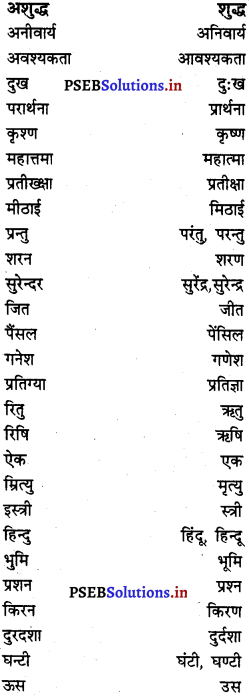
![]()



![]()
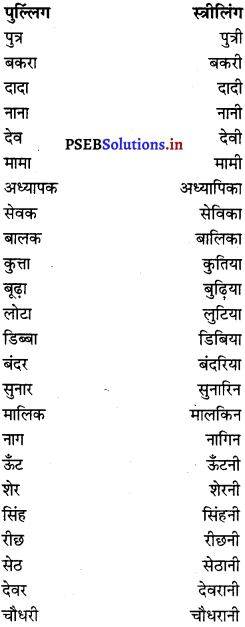
![]()
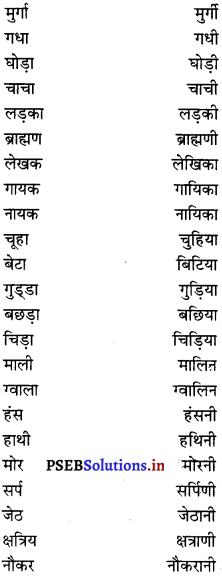
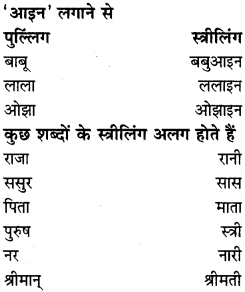
![]()
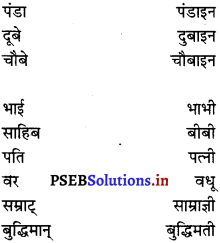
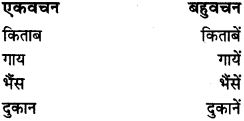

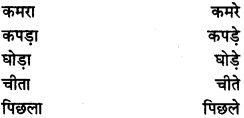
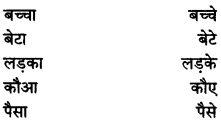

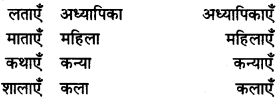
![]()
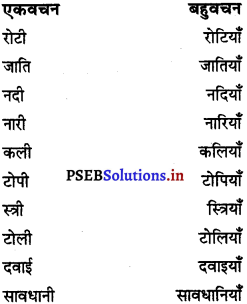
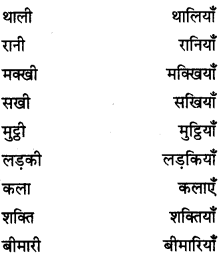
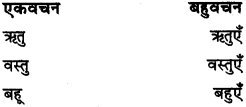

![]()


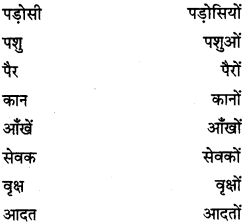
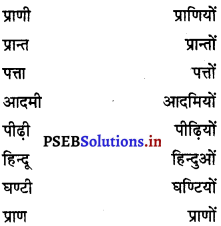
![]()


![]()
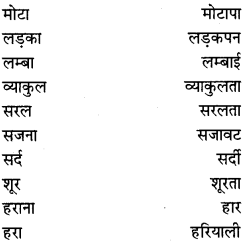
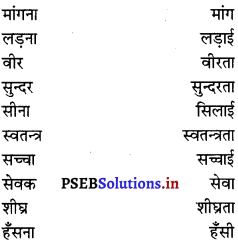
![]()
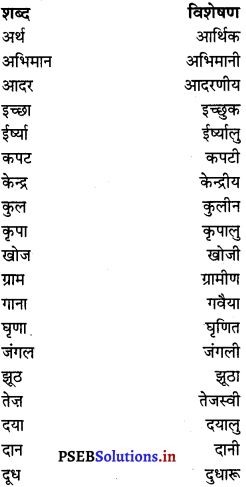
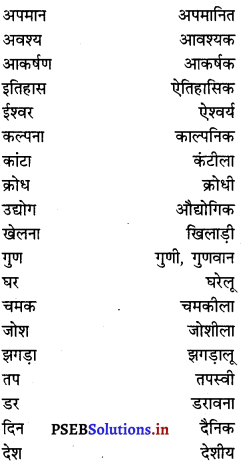
![]()
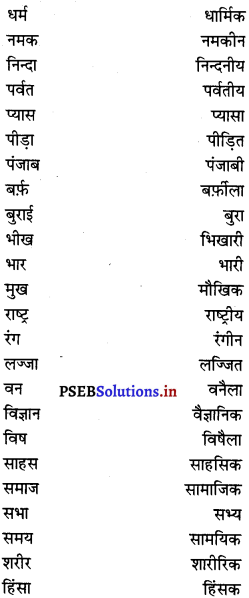
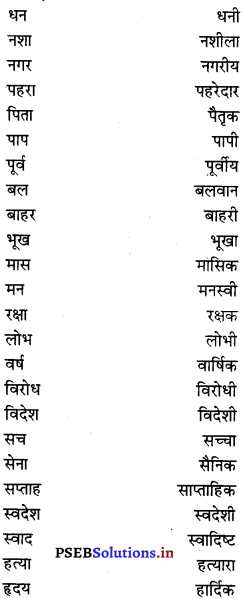
![]()
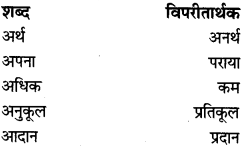
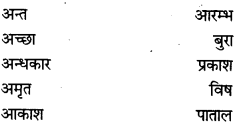

![]()

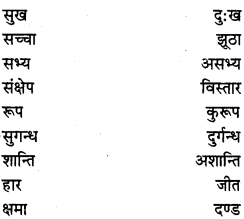
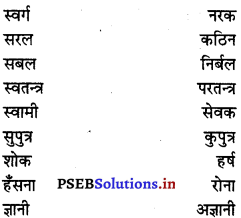
![]()
![]()

